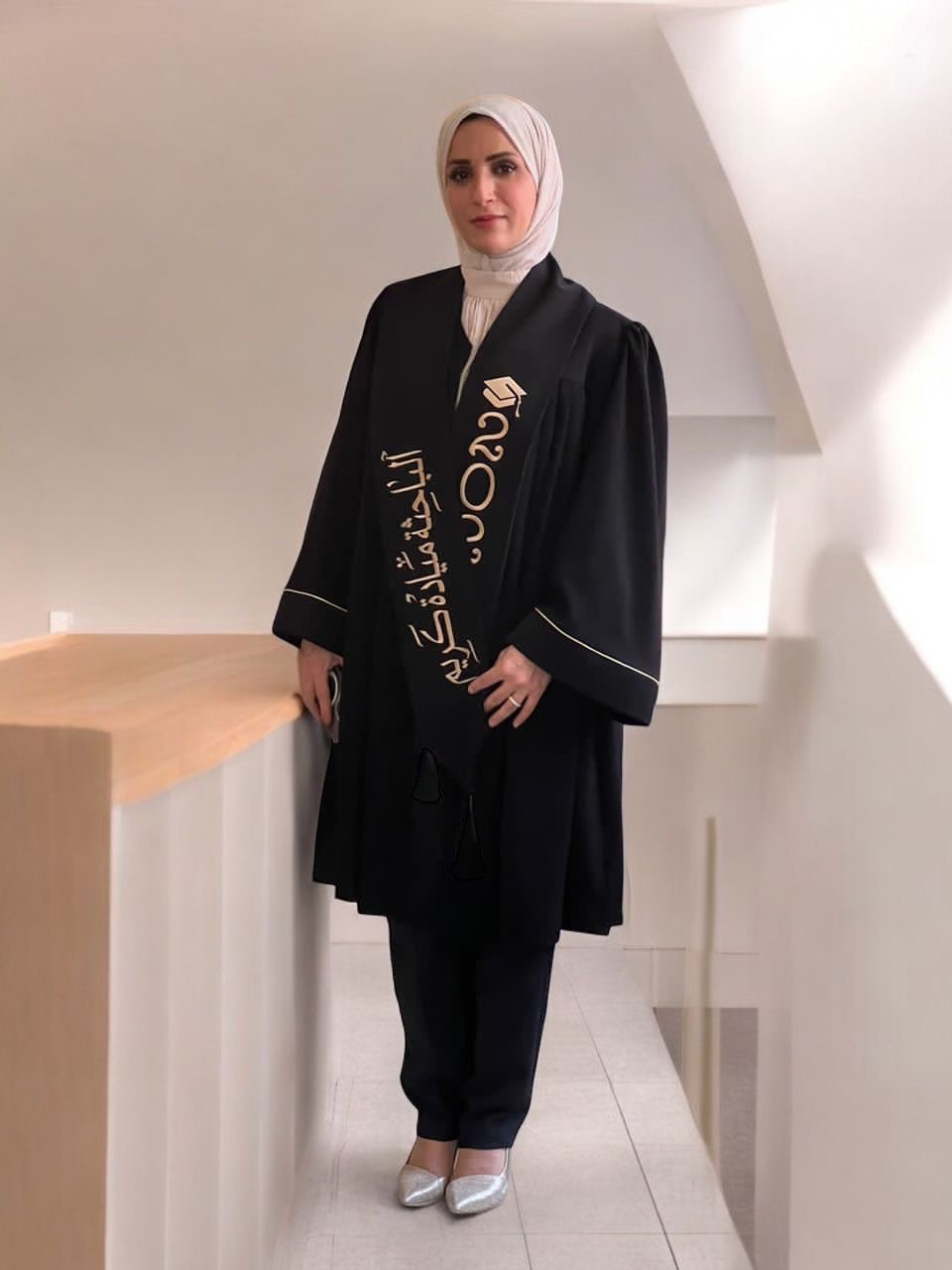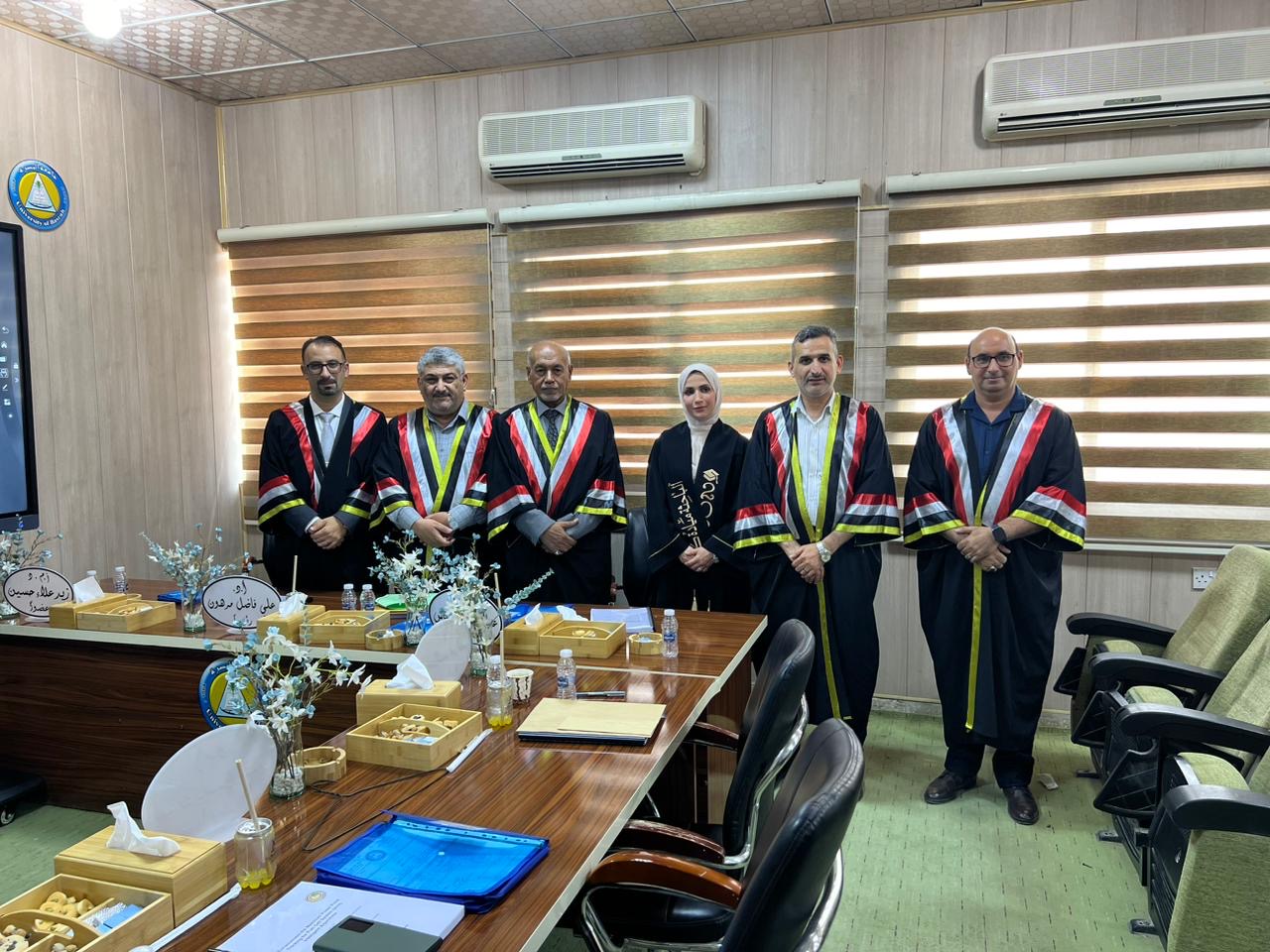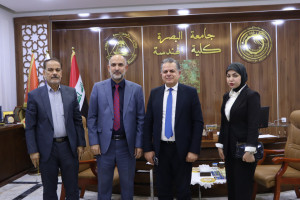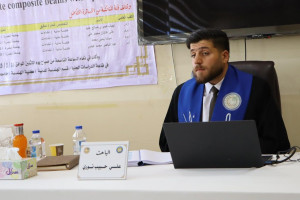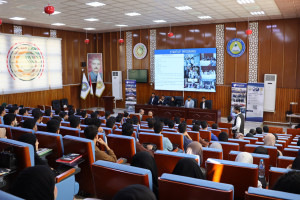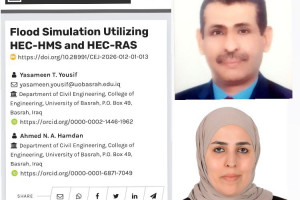
The master's thesis of the student Mayada Karim, a student in the College of Engineering, University of Basra, Department of Electrical Engineering, was discussed entitled Improving the tracking of the maximum power point of the fuel cell system using smart algorithms, and it includes The need for highly efficient energy system, an alternative and environmentally friendly has developeddue to rising energy needs, the depletion of fossil fuel resources, and rising global warming brought on by carbon emissions. Proton exchange membrane fuel cells (PEMFCs) are becoming increasingly popular as a highly promising source of energy due to their several positive advantageous, which including a quick startup time, a low operating temperature, and the maximum power density compared to all other fuel cells.
Nevertheless, before PEMFC can be commercialized, there are major technological obstacles to overcome.The PEMFC control, modeling and steady-state oscillations have been considered to be the most important technological problems among them. This is because PEMFCs' unique nonlinearities, time-varying features, and tight operational limits invariably result in significant difficulties for system modeling and controlwill cause PEMFC damage and power loss.
The thesis investigates use an algorithm Grey Wolf Optimizer with Proportional Integral (GWO-PI) that never before used in previous research to extract the Maximum Power Point in fuel cells. In tracking strategy within a Simulink model the battery and fuel cell system connected together through the DC/DC converter. A mathematical model of a boost converter is collected. The Gate Waveform Oscillator regulates the gate pulses to switch of the boost converter. Results show that the GWO-PI improves power generation and voltage tracking, eliminating persistent oscillations, reduce the total error particularly under rapidly changing conditions. This approach enhances PEMFC efficiency, adaptability, performance, and reliability.
